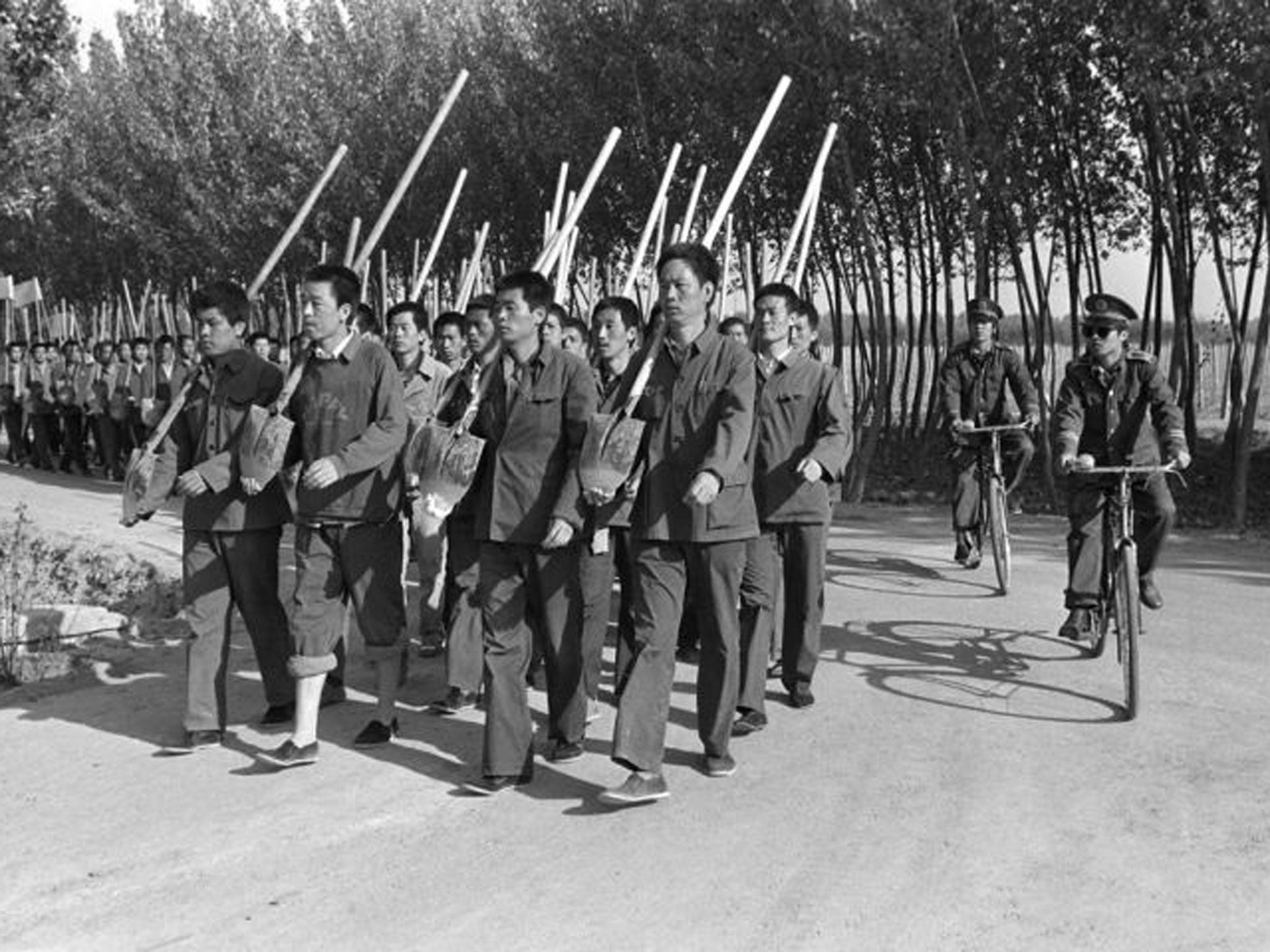The long march to justice: China set to abolish forced labour camps
China's new leadership to abolish labour camps set up by Mao that still hold thousands of prisoners without trial

Your support helps us to tell the story
From reproductive rights to climate change to Big Tech, The Independent is on the ground when the story is developing. Whether it's investigating the financials of Elon Musk's pro-Trump PAC or producing our latest documentary, 'The A Word', which shines a light on the American women fighting for reproductive rights, we know how important it is to parse out the facts from the messaging.
At such a critical moment in US history, we need reporters on the ground. Your donation allows us to keep sending journalists to speak to both sides of the story.
The Independent is trusted by Americans across the entire political spectrum. And unlike many other quality news outlets, we choose not to lock Americans out of our reporting and analysis with paywalls. We believe quality journalism should be available to everyone, paid for by those who can afford it.
Your support makes all the difference.China has said it will abolish its decades-old system of forced labour camps in what is being cautiously greeted as a sign that the country’s new leadership under Xi Jinping is prepared to reform.
The country’s “re-education through labour” or “laojiao” system - which allows police to jail minor offenders or political dissidents in special camps for up to four years without going through the courts - was first established under Chairman Mao Zedong in 1957 and has seen millions detained over the decades.
China has 310 labour camps holding about 310,000 prisoners and employing 100,000 staff, according to a report on the state broadcaster CCTV.
Rights groups have long complained that labour camps are used to silence government critics and punish practitioners of the banned Falun Gong spiritual movement, which preaches truthfulness, compassion and forbearance, and is seen as a threat to the ruling Communist Party.
However, police claim the camps provide a way of dealing with minor offenders such as drug addicts or prostitutes, without weighing down the legal system.
Reform of the system has been flagged for some time, but yesterday was the first time outright abolition was announced by the ruling Communist Party. Initial reports quoted the head of domestic security, Meng Jianzhu, telling a meeting of judicial and legal officials from all over the country that the Party had decided it would stop the practice of sending people to labour camps by the end of the year.
The system was outdated and the country’s parliament, the National People’s Congress, will debate getting rid of the scheme, said Mr Meng, according to a number of Chinese media outlets.
However, later reports on Xinhua, China’s official news outlet, were less strident, focusing more on reform and steering clear of forecasting the demise of re-education through labour.
Steve Tsang of the China Policy Research Institute at the University of Nottingham said the announcement was significant, but it is crucial to see if the new government of Xi Jinping is prepared follow through with it.
Professor Tsang said the “confusion” over the conflicting intensity of news reports on the announcement suggests “that there are strong voices in the top leadership that would like to put an end to re-education through labour but even stronger reservations remain.”
Mr Tsang said it is possible that China could still seek to put the system on a “more proper legal footing”, rather than abolish it. News of reform of the re-education through labour system came as Mr Xi made a public call to step up the fight against “injustice and corruption” to ensure “justice in each judicial case”.
In a written message to the same political and legal meeting where the labour camp system announcement was made, Mr Xi called for efforts to “firmly oppose injustice in law enforcement and judicial corruption”. He did not mention the labour camps.
When originally established, the labour camps were administered by a mixture of civil affairs officials, public security officers and labour officials. Reform of the system in 2002 left public security in charge, and the system became mostly used for dealing with offenders such as petitioners who bring grievances to the central government in the hope of redress.
Public criticism of the system has been mounting. In August, a mother who petitioned courts and local government officials for tougher penalties for seven men who were convicted of abducting, raping and prostituting her 11-year-old daughter, was sentenced to 18 months in a labour camp. She was released within a week following complaints from academics, state media and the public.
Join our commenting forum
Join thought-provoking conversations, follow other Independent readers and see their replies
Comments